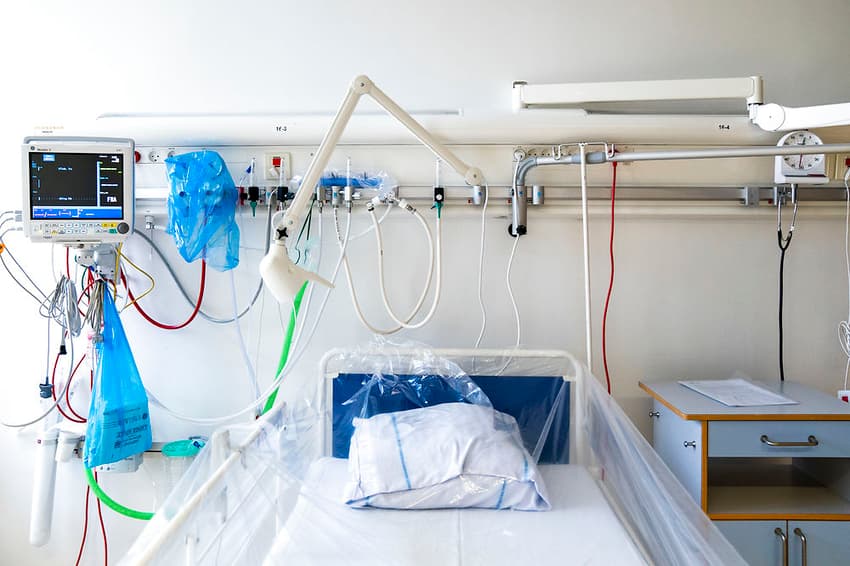Danish hospitals reduce Covid-19 beds as admissions decline

The number of people hospitalised with Covid-19 in Denmark has increased significantly since December, enabling hospitals to begin reducing capacity for patients with the virus.
As of February 1st, 544 people are admitted to hospital in Denmark with coronavirus. That figure is significantly lower than at the peak of the second wave, when it exceeded 900 in late December and topped at 964 on January 4th.
The Greater Copenhagen region currently has 360 beds for coronavirus patients but is expected to reduce that number in the immediate future to 300 or 240.
“The combination of low infection numbers and falling admission numbers have convinced us that wave two is subsiding,” Kristian Antonsen, the acting head of the Frederiksberg and Bispebjerg hospitals, told news wire Ritzau.
The daily total of confirmed new cases of Covid-19 have been under 1,000 consistently since mid-January. Monday saw a total of 488 new cases registered. The test positivity rate is under 1 percent.
That compares to daily new infections ranging between 3,500-4,500 in mid-December, with the test positivity rate at 2.4-3.5 percent.
Antonsen said that the Greater Copenhagen region was now returning to the original form of its contingency plan for coping with patient numbers. The plan was extended as the winter wave of the virus worsened.
Aarhus University Hospital also confirmed that it has reduced its number of Covid-19 beds to 26 as of Monday. That number had previously been increased to 40.
“We are reducing number of beds because we are seeing fewer hospitalisations per day, and the overall number of inpatients has fallen,” said senior consultant Lars Østergaard of the infectious diseases department at the hospital.
Østergaard noted that capacity could be increased should the need return – for example, if the more infectious B117 variant causes a new wave of hospitalisations.
Comments
See Also
As of February 1st, 544 people are admitted to hospital in Denmark with coronavirus. That figure is significantly lower than at the peak of the second wave, when it exceeded 900 in late December and topped at 964 on January 4th.
The Greater Copenhagen region currently has 360 beds for coronavirus patients but is expected to reduce that number in the immediate future to 300 or 240.
“The combination of low infection numbers and falling admission numbers have convinced us that wave two is subsiding,” Kristian Antonsen, the acting head of the Frederiksberg and Bispebjerg hospitals, told news wire Ritzau.
The daily total of confirmed new cases of Covid-19 have been under 1,000 consistently since mid-January. Monday saw a total of 488 new cases registered. The test positivity rate is under 1 percent.
That compares to daily new infections ranging between 3,500-4,500 in mid-December, with the test positivity rate at 2.4-3.5 percent.
Antonsen said that the Greater Copenhagen region was now returning to the original form of its contingency plan for coping with patient numbers. The plan was extended as the winter wave of the virus worsened.
Aarhus University Hospital also confirmed that it has reduced its number of Covid-19 beds to 26 as of Monday. That number had previously been increased to 40.
“We are reducing number of beds because we are seeing fewer hospitalisations per day, and the overall number of inpatients has fallen,” said senior consultant Lars Østergaard of the infectious diseases department at the hospital.
Østergaard noted that capacity could be increased should the need return – for example, if the more infectious B117 variant causes a new wave of hospitalisations.
Join the conversation in our comments section below. Share your own views and experience and if you have a question or suggestion for our journalists then email us at [email protected].
Please keep comments civil, constructive and on topic – and make sure to read our terms of use before getting involved.
Please log in here to leave a comment.